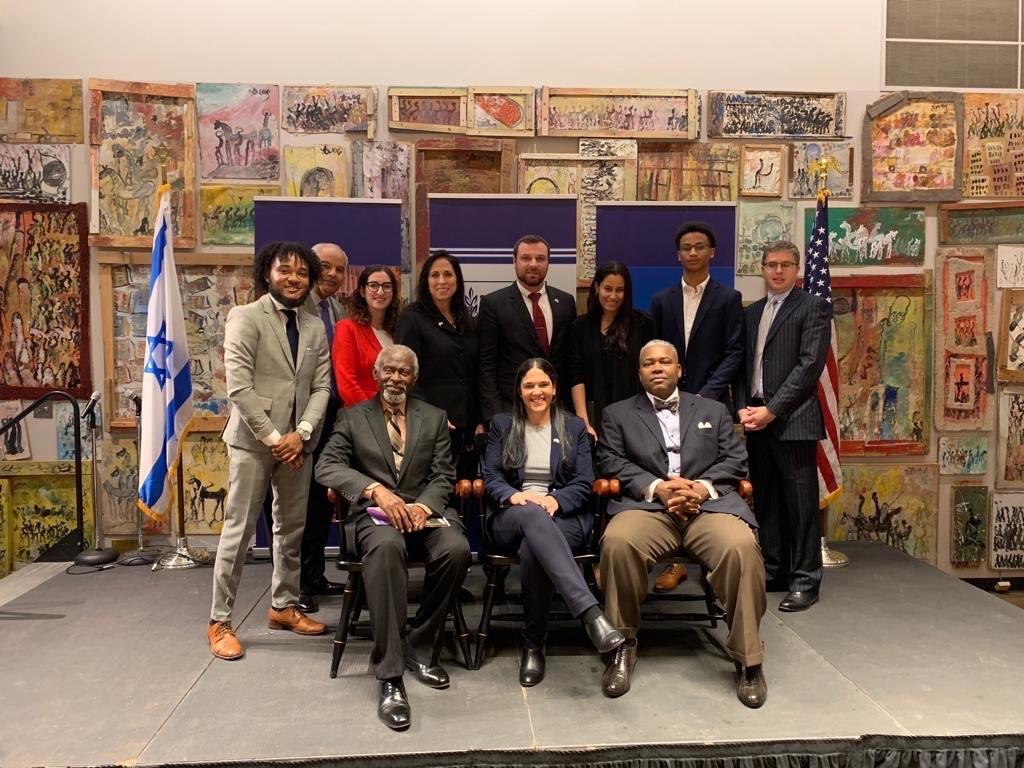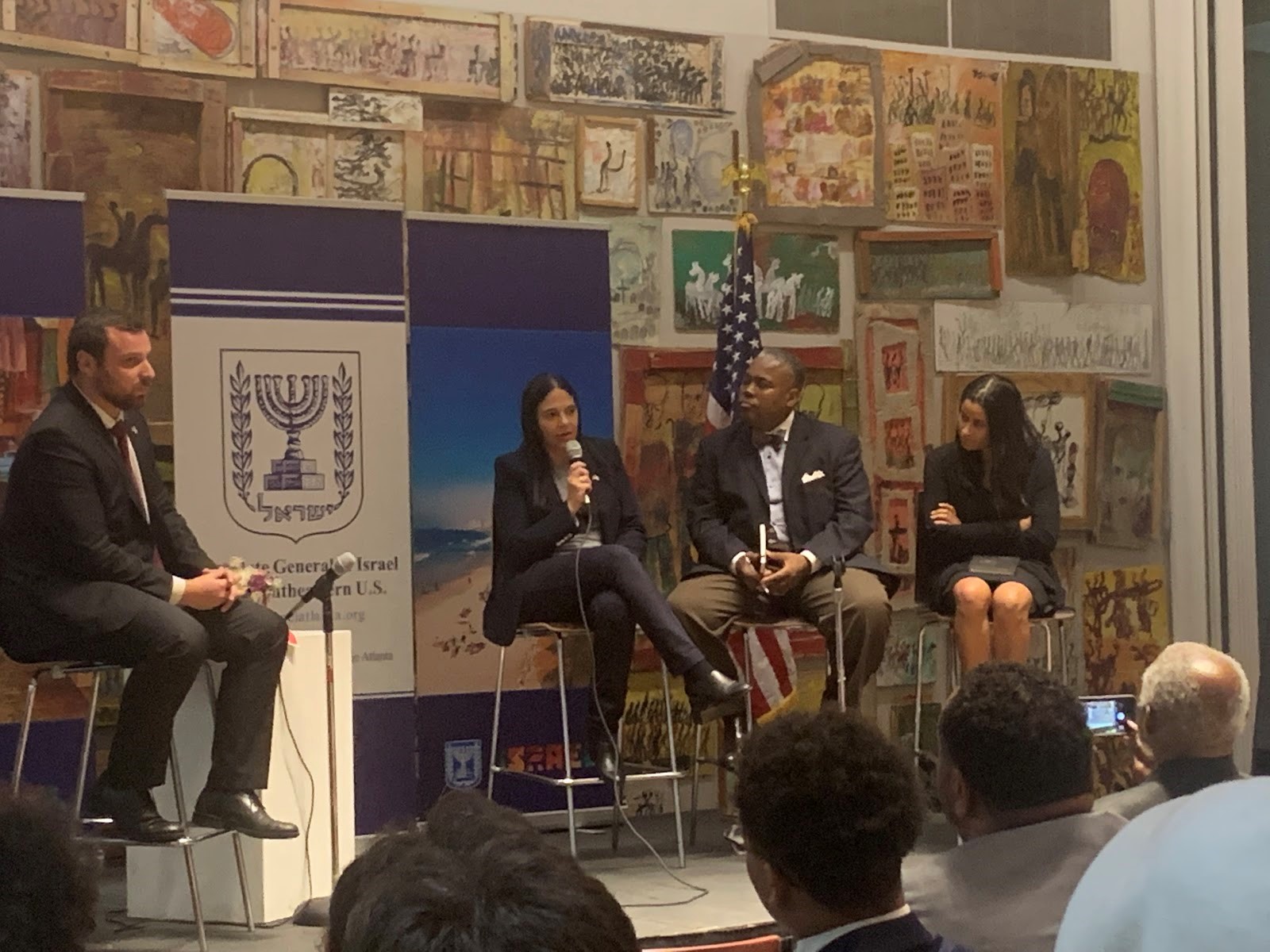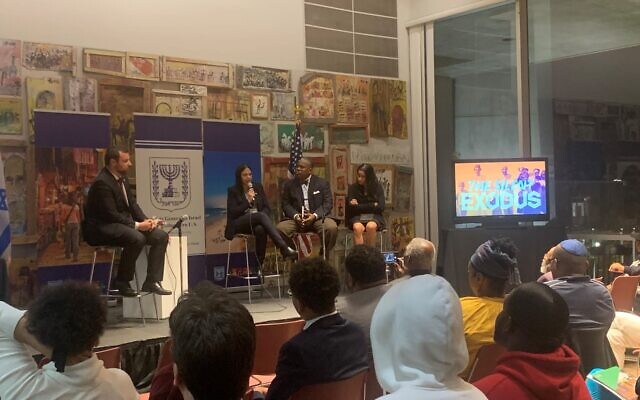Morehouse Commemorates Jewish Refugees
Morehouse College hosted a screening of the film, "The Silent Exodus," and a panel discussion about Jewish refugees from the Middle East and North Africa.
A crowd gathered at Morehouse College Nov. 24 in the Martin Luther King Jr. International Chapel to learn about the exodus of Jews from countries across the Middle East and North Africa.
The event, which was coordinated by the Consulate General of Israel in Atlanta, began with an exhibit in the building’s lobby and concluded with a reception, film screening and discussion panel.
The exhibit included displays with histories and narratives about Mizrahi Jews from Middle East and North African countries, describing aspects of their culture, migration and experiences in the region.
A crowd of both the Jewish community and students from Morehouse and other colleges screened 17 minutes of the hour-long documentary, “The Silent Exodus,” which discussed the departure of about 850,000 Jews from countries across the Middle East and North Africa beginning in the late 1940s. The clips focused on the stories of the Egyptian Jewish community, who described growing persecution and fear leading to their mass emigration to the new State of Israel and other countries, and their continued sadness and longing for their life in Egypt.
Both Israel Consul General Anat Sultan-Dadon and Deputy Consul General Alex Gandler were panelists, along with Morehouse professor Harold V. Bennett and Spelman College student Amber Booker. They each began by discussing their personal stories.

Gandler, who was born in Russia and emigrated to Israel with his family, related the experiences of Mizrahi Jews to those of of Jews under the Soviet Union.
Booker told the harrowing tale of her grandmother, who was a Holocaust survivor.
Sultan-Dadon’s family were victims of the exodus of Jews from Egypt. “This was a prosperous community, she said. When her father was 11, her grandfather decided that Egypt was no longer safe following heightened violence and persecution, so they moved to the new State of Israel. “They were made to feel less and less welcome [in Arab countries and Iran] until many were simply expelled.”
She continued, describing the community’s determination to move forward with their lives in new countries and to stop being refugees. “That does lie in very sharp contrast to the situation with the Palestinian refugees, who at a similar time became refugees and the choice was different,” she said. There are currently 1.5 million Palestinian refugees from 1948 and 1967 conflicts, about one-third of Palestinian refugees, living in recognized camps, according to the United Nations Relief and Works Agency.
“The choice from their part … was to perpetuate the status of refugee,” Sultan-Dadon said. She was challenged on this point as the discussion was opened for questions.

“You said something very early on that I was never able to process. … Is there a slippery slope with comparing the Jewish community’s ability to integrate with different communities around the world with other refugee experiences?” one audience member asked. Sultan-Dadon responded by saying she didn’t understand what he meant by a “slippery slope” and discussed Israel’s relationship with different populations.
Another audience member said she was an Orthodox Jew originally from New York and challenged the panel on racism within Israeli society. “I’ve spent years living in Israel and in Nigeria working with people, … Jews, refugees who have been for the last 15 years hoping to gain asylum in Israel and have repeatedly been denied,” she said. “I’ve also worked extensively with Ethiopian Jews who still today are attempting to gain equal status.” She directed a question to Bennett, inquiring what efforts are being made by Morehouse and Spelman to engage Jews of African descent, like herself, and to educate the Israeli Consulate about their situation.
Bennett philosophized about Jewish identity and mentioned that Morehouse, which includes black Jewish students, has plans to address this topic, saying, “We’re moving in the direction of bringing the larger community on board. There are some initiatives planned.”
The woman countered, “Dr. Bennett, there better be Jews of color on this stage the next time.”




comments